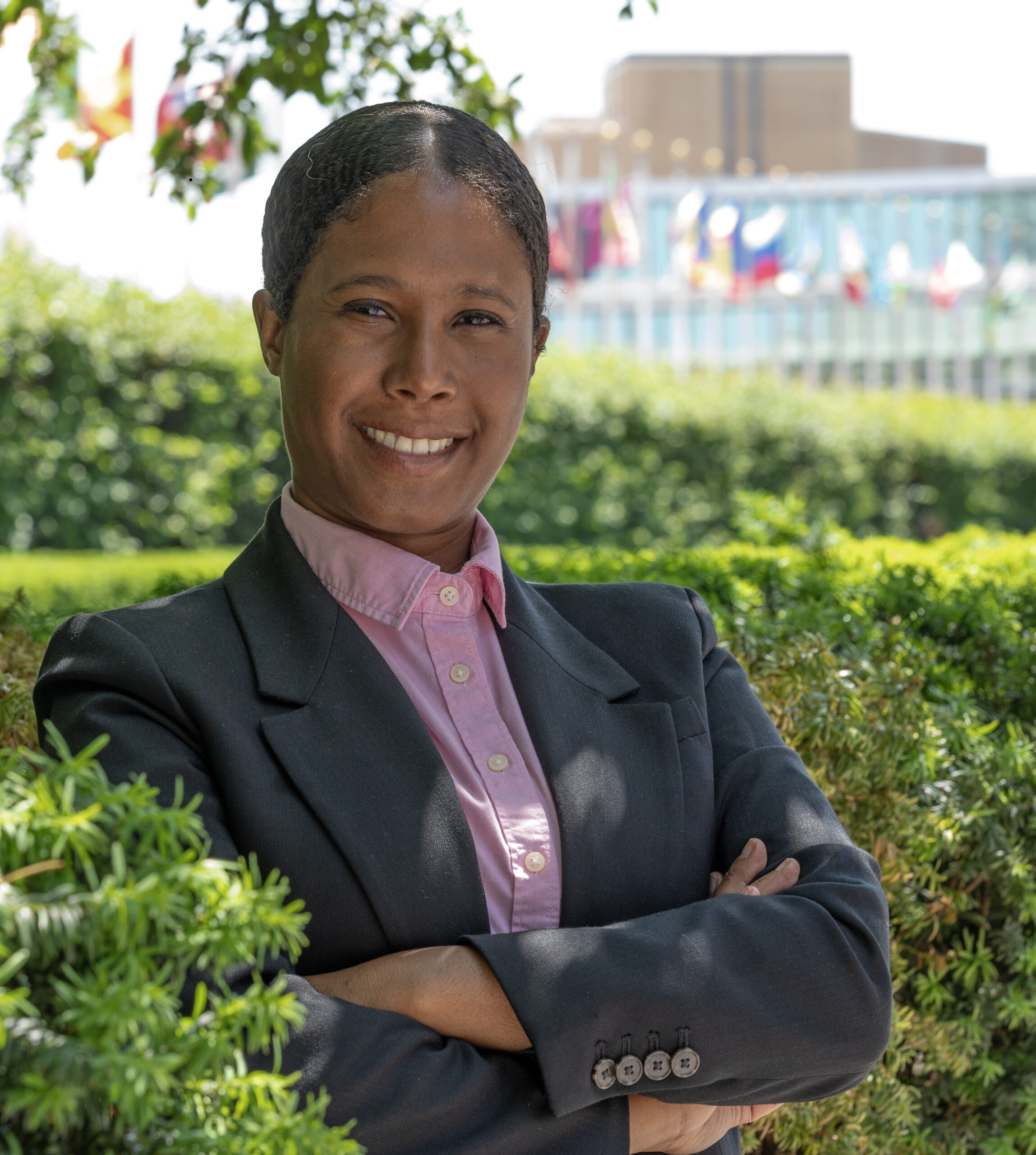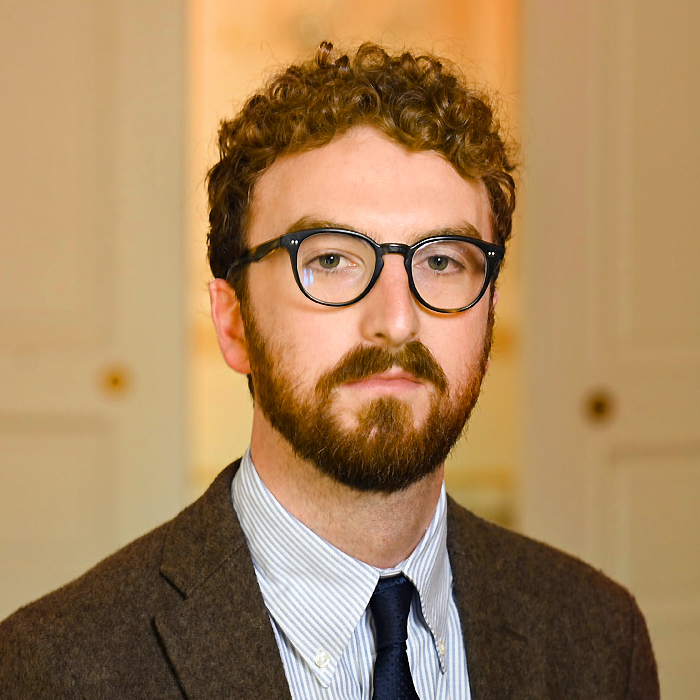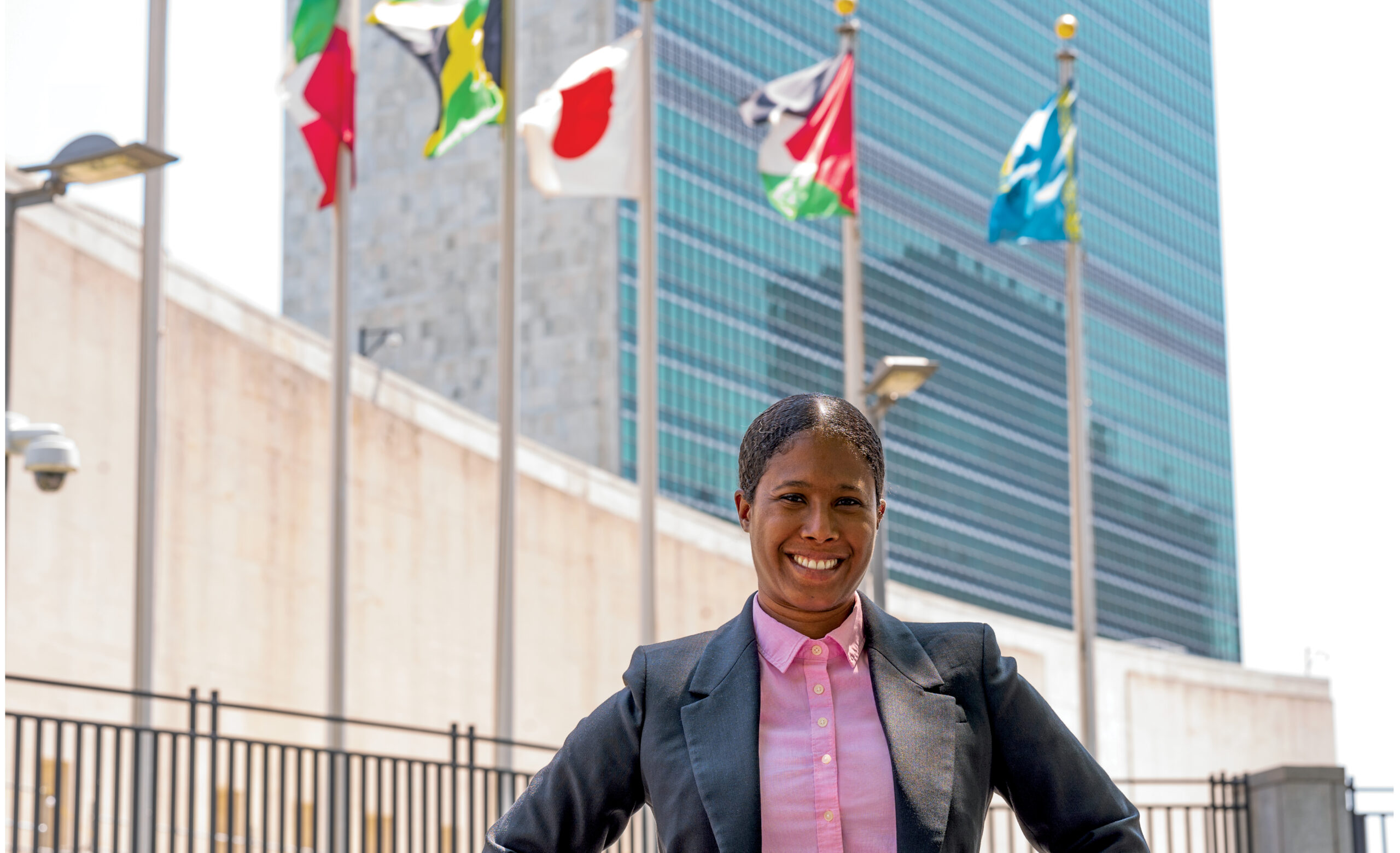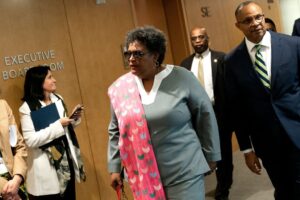This article is adapted from AQ’s special report on cybersecurity
Malene Alleyne finds that at regional and international meetings, it can be difficult for Caribbean voices to be fully heard. Sometimes literally: At a biodiversity conference in Argentina in April, the Jamaican human rights lawyer began to speak, only to have a moderator intervene, reminding an uncomprehending, largely Spanish-speaking audience to put on their headsets. At another recent conference, there was no translation to Haitian Creole, leaving part of the audience unable to fully understand the debate.
Through her work at her not-for-profit organization, Freedom Imaginaries, that’s one of many things Alleyne is trying to change. “The experience of racialized communities is marginal” in major international gatherings, she said. “The issue of inclusion continues.”
Alleyne, 41, is part of a generation of advocates across Latin America and the Caribbean who are pushing for dramatically faster change, and a more grassroots approach, on issues ranging from climate change to racial justice. As this generation moves into leadership positions in governments and multilateral organizations, many see an opportunity to remake their countries to become less dependent on extractive industries and more in tune with the interests of marginalized communities.
A graduate of Harvard Law School, Alleyne is, among other initiatives, using human rights law to bring cases on behalf of local communities damaged by industries including mining and oil. For example, last November, she won a resolution from the Inter-American Commission on Human Rights (IACHR) requesting that the Jamaican government take action to protect peasant groups affected by bauxite mining operations in the north of the country.
That generated some controversy in a country where bauxite and its derivatives account for more than a third of exports. But the Caribbean is also one of the regions at greatest risk from rising seas and the other impacts of climate change, leading to a growing political debate.
Resource extraction “in most cases benefits Global North countries and consumers, as well as local political elites who are often in collusion with transnational corporations,” Alleyne told AQ. “As inevitable as this model of development seems to be, it’s fueling the climate crisis, which for some countries in the Caribbean is an existential threat.”
That’s another reason why representation is so important at conferences and in courts around the region, she said. “If [people on the frontlines] could be empowered to claim rights to defend their lives and livelihood, to participate in environmental decision-making that typically excludes them … I assume that they can advance real change and real reforms.”

“As inevitable as this model of development seems to be, it’s fueling the climate crisis.”
The Caribbean on the world stage
When AQ talked to Alleyne, in New York for a meeting of the UN Permanent Forum on People of African Descent, at the top of her mind was the issue of representation of the peoples—and marginalized groups—of the Caribbean in international fora.
Alleyne’s is a critique that comes from years of experience inside what she calls the mainstream world of human rights—including stints at the IACHR and the UN Refugee Agency.
Though some smaller countries in the region find that maintaining a delegation in New York or Geneva is a prohibitive expense, the nations of the Caribbean have generally good representation in international fora, said Juan Salgado, a researcher at the World Justice Project.
But for a poor person in the Caribbean, “it’s virtually impossible” to make a successful rights claim in international judicial venues, Salgado told AQ. “In theory, they do have access … however, you need some leverage and the education and resources.”
Alleyne said that she is encouraged by the reception that her ideas have gotten in some international venues—for example, at a conference under the auspices of the Escazú Agreement, an international environmental treaty signed by two dozen Latin American and Caribbean nations.
“At the end I said, ‘This venue is great but … people of African descent are not represented.’ I thought that was very well received.” Not only was she invited back, but an Indigenous woman approached her afterward to give her a blessing. “She saw someone who spoke directly to groups that feel marginalized,” said Alleyne.
Alleyne’s goals aren’t limited to a seat at the table. Freedom Imaginaries’ website says it aims to use human rights law to “tackle legacies of slavery and colonialism,” “promote reparations and accountability, [and help construct a] truly post-colonial world” where the rights of nature and of marginalized groups are respected. Alleyne wants to see the Caribbean escape the resource-dependent system she sees as contributing to the continuation of racialized inequalities that began under slavery and colonialism.
Some Caribbean leaders are already taking up the climate cause in a novel way. The most prominent example may be Barbadian Prime Minister Mia Mottley, who led a drive to create an instrument at the International Monetary Fund to finance climate adaptation for small island nations. Her Bridgetown Initiative, unveiled at COP27 in Egypt, entailed a proposal to “substantially tweak the global financial architecture” to make more money available to countries on the frontlines of the climate crisis.
Mottley has also called for reparations to Barbados, both on the grounds of a “development deficit” resulting from legacies of slavery, but also on the grounds of climate justice.
Alleyne called Mottley “one of the most visionary” leaders in the Caribbean. “The insistence from developing countries to have this discourse on loss and damage finance is extremely important.”
But, Alleyne added: “Reparations will not be transformative if the discussion stops there, especially if the governments that are claiming these [funds] haven’t put in place accountability and transparency structures to ensure that any funds received on the basis of climate reparations are distributed equally so that frontline communities benefit.”
A Jamaican Test Case
Alleyne’s recent advocacy on behalf of peasant communities in the northern St. Ann region affected by bauxite mining provided a test for her approach.
After years of advocacy by environmental groups in Jamaica, in March 2022 Prime Minister Andrew Holness designated the Cockpit Country Protected Area, shielding some 78,000 hectares of land from extractive activity. The area is known both for its surviving rainforest and for its rich history—sheltering, from the 17th century onward, communities of escaped slaves known as maroons who continue to enjoy a degree of political autonomy.
But the designation of the protected area did not satisfy environmental advocates, who point out that mining can still take place very close to the dwellings of peasant communities who live outside the protected area.
“We considered the definition of Cockpit Country to be much broader than what was defined by the government,” said Theresa Moodie, CEO of the Jamaica Environment Trust. “We have been proposing [that] we add a buffer zone.”
In June 2022, Alleyne submitted to the IACHR a request for precautionary measures on behalf of peasant communities affected by mining in St. Ann’s parish, requesting the organization require Jamaica to “take the necessary measures to protect the rights to life, personal integrity, and health of the Afro-descendant persons identified as beneficiaries in the St. Ann region.”
Moodie discussed Alleyne’s close work with local communities ahead of the request: “She was learning about the industry and the kind of impact it was having [by] speaking to people and learning from them.”
Last November, the IACHR granted the request, “after considering that they are in a serious and urgent situation that poses a risk of irreparable harm to their rights in Jamaica.” In January, in a separate judgment, Jamaica’s Supreme Court granted a temporary injunction on bauxite mining in parts of St. Ann’s and Trelawny parishes.
The decision did not please everyone. In the Gleaner, Jamaica’s paper of record, an article by Lance Neita, a consultant who works in the bauxite industry, warned of harm to a mining industry that buoys Jamaica’s economy and supplies it with jobs and foreign reserves. Neita quoted a Jamaican folk saying, “Back no know him a wear shut until shut drop off,” whose meaning is roughly equivalent to, “You don’t know what you’ve got until it’s gone.”
Jamaica is the world’s seventh-largest bauxite producer; exports increased over 20% between 2021 and 2022. Aluminum oxide, a derivative of bauxite, accounted for 36% of Jamaica’s exports as of 2020.
But the cost-benefit logic isn’t so simple. “When we look at things like agriculture, which is being impacted by mining [yet] employs more people … I just don’t believe it’s a strong enough argument,” said Moodie.
Alleyne also points to ties between extractive industries and the climate crisis. Because of its location and the nature of its island countries, the Caribbean is more vulnerable than other regions to extreme weather and natural disaster. “In large and wealthy countries with strong safety nets, localized natural disasters can be absorbed,” writes the economist Adam Tooze. “For the smaller states of Central America and Caribbean such shocks can easily become all-consuming.” Hurricane Dorian, which hit the Bahamas in 2021, inflicted damage totaling approximately 25% of the country’s GDP—one of the highest in the Caribbean—in just three days.
Alleyne sees her work as a contribution toward imagining a future where Caribbean societies are free from the unequal social and environmental toll of extractive industries. What would that look like, economically? It’s an issue the Caribbean is already grappling with today, as nations like Trinidad and Tobago, historically reliant on hydrocarbons, see their production drop.
“It’s not a problem that can be solved in a conversation or even in one generation of activism,” Alleyne said. “There needs to be a cross-movement, cross-disciplinary community discourse on alternative models. … What we can do from one generation to the next is build a pathway so maybe future generations can benefit from a different world in which people can live better.”








